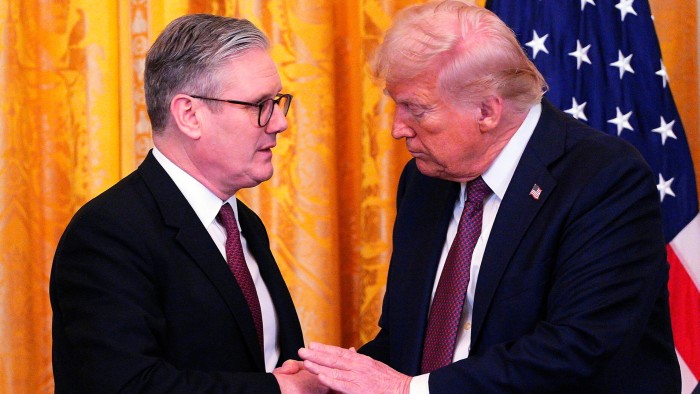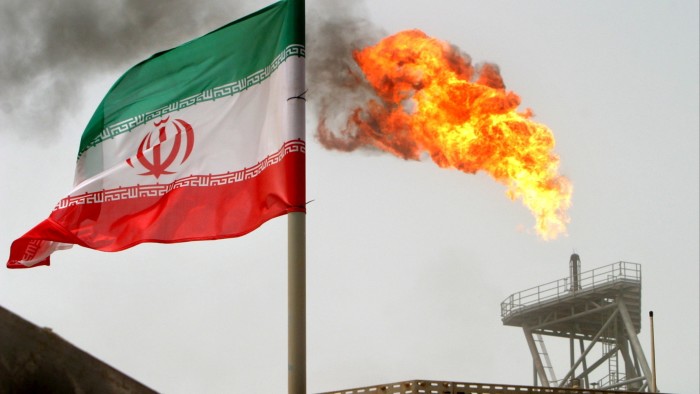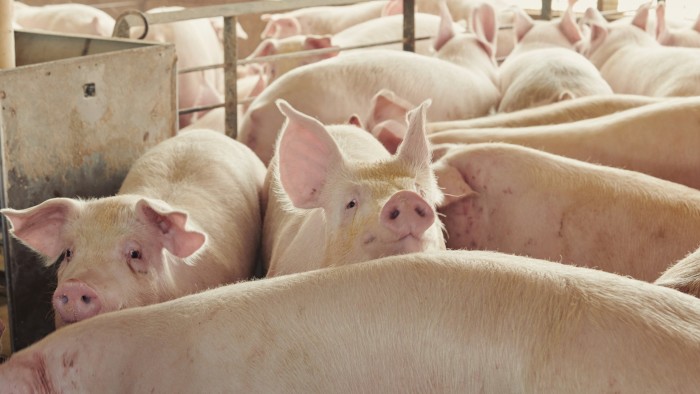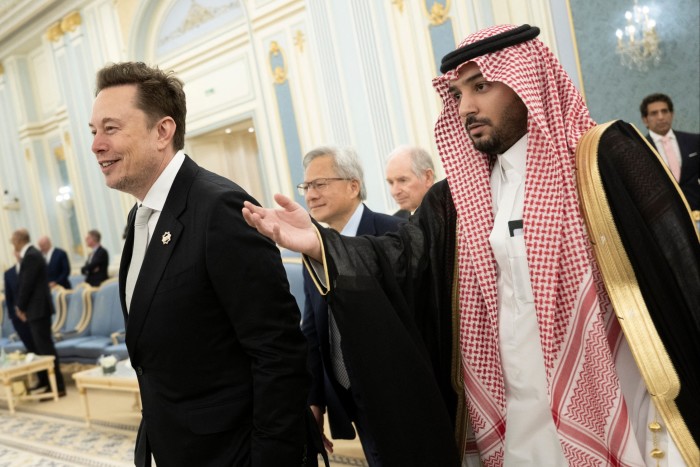Trump says he will lift sanctions on Syria
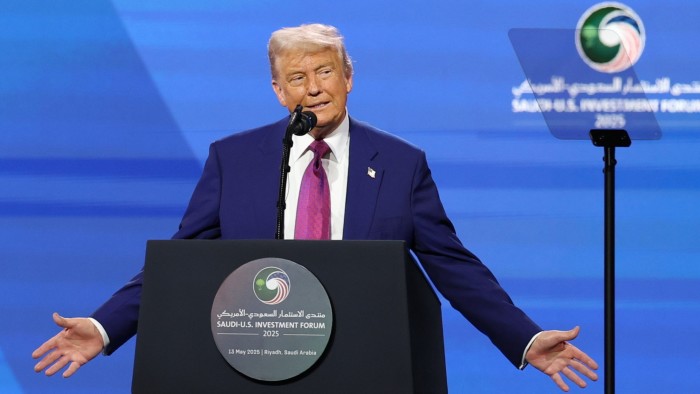
Unlock the White House Watch newsletter for free
Your guide to what Trump’s second term means for Washington, business and the world
Donald Trump announced he would lift US sanctions on Syria during his visit to Saudi Arabia, as Arab states push Washington to support the nascent government’s efforts to stabilise the war-devastated nation.
A White House official said the American president would also meet Syria’s new president, Ahmed al-Sharaa, in Riyadh on Wednesday, saying he “agreed to say hello” to the Syrian leader.
Trump said that after speaking with Saudi Crown Prince Mohammed bin Salman and Turkish President Recep Tayyip Erdoğan, he would “be ordering the cessation of sanctions against Syria in order to give them a chance at greatness”.
He also signalled that he would begin normalising relations with Damascus. “They’ve had their share of travesty of war, killing many years,” he said.
“That’s why my administration has already taken the first steps towards restoring normal relations between the United States and Syria for the first time.”
The move marks a softening of Washington’s stance towards Syria after Sharaa’s Islamist movement led a rebel offensive that toppled dictator Bashar al-Assad and ended his family’s more than 50-year dynastic rule over the Arab state.
It will boost Sharaa as he battles to consolidate his administration’s control over the fragmented nation.
Syrians and Arab states have urged western powers to lift all Assad-era sanctions on the country and have warned that reviving the bankrupt economy is the most challenging task facing Sharaa’s transitional government.
The Syrian leader and his Hayat Tahrir al-Sham movement, which dominates the new government and security forces, are designated terrorists by the US due to past affiliations with al-Qaeda.
But Sharaa renounced his ties to al-Qaeda in 2016 and has pledged his government will be an inclusive administration that respects all Syria’s sects and minorities.
The UK and the EU have lifted some sanctions, while the US has issued waivers to allow trade in humanitarian goods and allow Qatar to pay public sector salaries in Syria.
If Washington lifts all its sanctions, it would pave the way for others to follow.
But the move would anger Israel, which has deployed troops in Syria, seized territory in the country’s south and repeatedly launched air strikes against Syrian military facilities. Israeli Prime Minister Benjamin Netanyahu has repeatedly described Sharaa’s government as a “jihadist regime”.
But Trump said: “There is a new government that will hopefully succeed.”
“I say good luck, Syria. Show us something special,” he added.
Trump’s visit to the Middle East comes as the region has endured its most sustained and deadly periods of conflict in decades in the wake of Hamas’s October 7 2023 attack on Israel and the Israeli military’s retaliatory offensive in Gaza.
Arab leaders have been urging Washington to put more pressure on Israel to end its 19-month war in Gaza.
Trump made few comments about the conflict as the humanitarian catastrophe in the besieged strip deepens and Israel prepares to expand its offensive against Hamas. But he blamed the militant group for the carnage.
“The people of Gaza deserve a much better future, but that will and cannot occur as long as their leaders choose to kidnap, target and torture innocent men, women, and children for political ends.”
Arab leaders are, however, hoping Trump will reach a deal with Iran to resolve its years-long stand-off with the US over Tehran’s expansive nuclear programme to reduce risk of American and Israeli strikes on the Islamic republic triggering a new conflict in the Middle East.
Trump condemned Iran in his speech, saying its leaders were “focused on stealing their people’s wealth to fund terror and bloodshed abroad”.
But he reiterated that he wanted a deal with Tehran after initiating talks on the nuclear crisis. “I am here today not merely to condemn the past choices of Iran’s leaders, but to offer them a new and a better path towards a much more hopeful future.”
He added: “if Iran’s leadership rejects this olive branch and continues to attack their neighbours, then we will have no choice but to inflict massive maximum pressure and drive Iranian oil exports to zero like I did before.”
The nuclear crisis with Iran erupted after Trump in 2018 withdrew from the accord Tehran signed with the Obama administration and other world powers.
At the time Saudi Arabia supported Trump’s decision, but it has since pursued a period of détente with Iran and wants to avoid a conflict that could spill over its border.
Additional reporting by Raya Jalabi in Beirut


